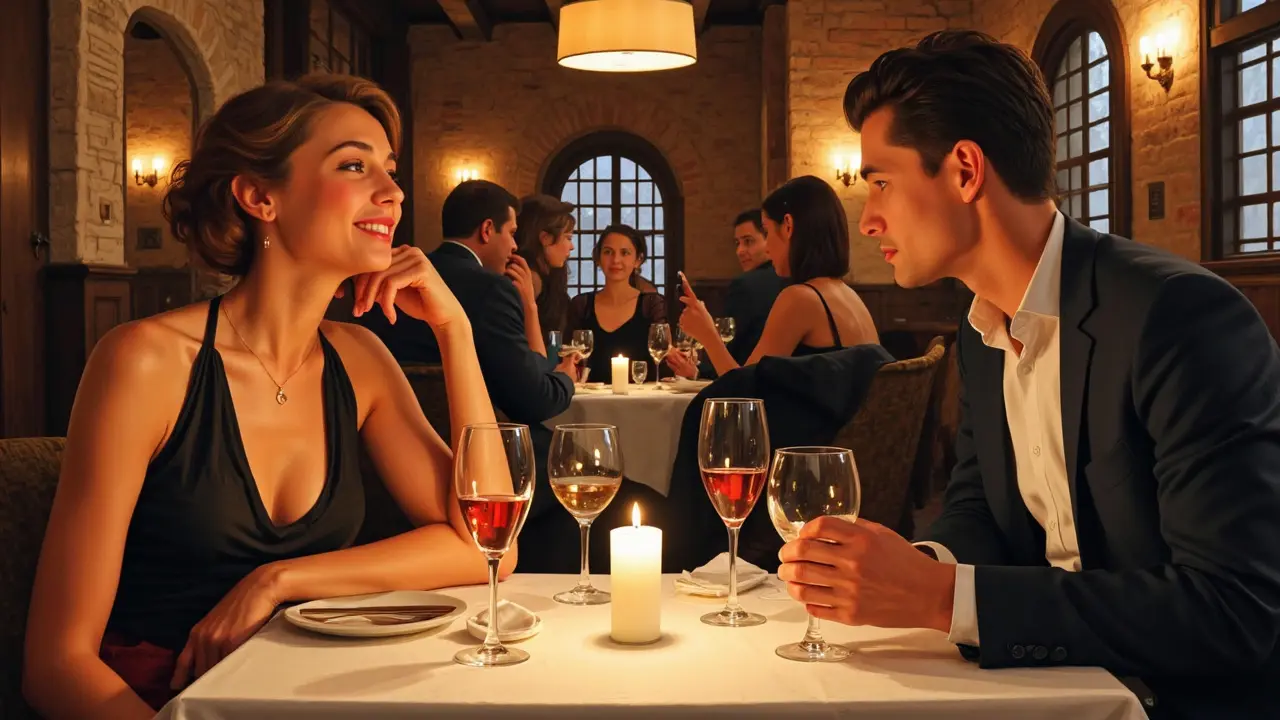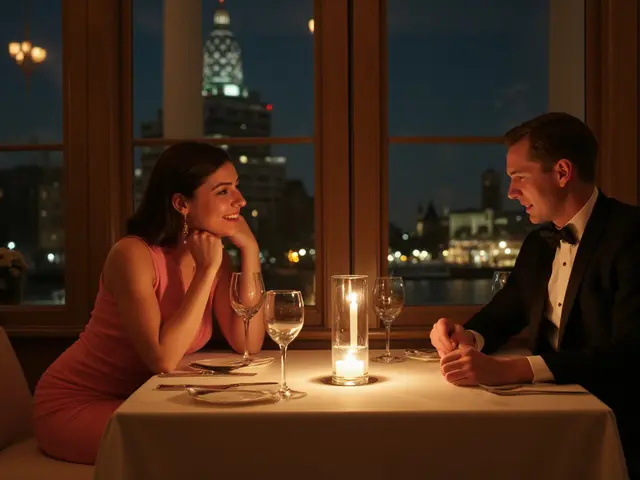You think chivalry is old-fashioned? Think again. Walk down any boulevard in Paris, or stumble into a buzzing café in Kraków, and you’ll see that being a gentleman is alive and kicking — but the rules aren’t always obvious. Whether you’re after a whirlwind romance in Rome or hoping for something more serious in Stockholm, you’ll need more than just a charming grin. Eurogirls have their own playbook, and most guys get blindsided by unspoken expectations. Here’s how you can stand out instead of sticking out like a clueless tourist.
Understanding the Cultural Landscape
Imagine sitting across from a Milanese woman who expects you to be punctual, or a Parisian who thinks small talk is an art. In Western Europe, punctuality is a statement of respect. Show up fifteen minutes late in Germany, and you’re already not off to a great start. But head further south — in Spain, for example — people might show up fashionably late, and there’s no offense taken. Social norms swing wildly across Europe: while some Scandinavian women value independence, others in more traditional corners like Poland often warm to classic displays of chivalry.
Let’s put some texture here. Swedish women, for example, might get uneasy if you insist on picking up the entire tab — they’re more used to splitting bills because equality is king. But Romanian women may see picking up a coffee as a sweet, thoughtful gesture. Get it wrong, and you might seem either pushy or uninterested. A 2022 survey by Eurobarometer found that 73% of European women valued respect for personal space and punctuality in a first meeting. In Southern and Eastern Europe, dressing up and small thoughtful gestures — like opening a door — are often still expected.
European women generally have strong opinions about personal boundaries. They’ll make eye contact and engage in more meaningful conversation than you might expect (American small talk won’t cut it in Vienna). Don’t be surprised when you’re asked about your values or political views within the first half hour. And forget about ‘playing it cool’. Authenticity matters more than bravado.
Here’s a quick table that highlights different expectations across five European countries:
| Country | Punctuality | Who Pays? | Topic of Conversation |
|---|---|---|---|
| Germany | Highly important | Split or shared | Direct, intellectual topics |
| France | Important | Gentleman pays first date | Cultural, witty conversation |
| Sweden | Crucial | Split 50/50 | Personal beliefs |
| Italy | Flexible | Gentleman pays | Family, food, lifestyle |
| Poland | Appreciated | Gentleman pays | Personal life, ambitions |
If you want to fit in, always read the room. Watch how other men treat women and adjust accordingly. Don’t go in expecting ‘one size fits all’—European culture expects you to pay attention.
Communication: The Art of Listening and Speaking
Eurogirls grow up in environments where conversation is as much about what’s unsaid as what’s spoken out loud. They’re turned off by guys who brag or overshare — sounding desperate is a red flag across the continent. Instead, they rate active listening highly. This means really tuning in, asking follow-up questions, and not fidgeting with your phone while she tells you about her day.
Directness is another feature. If a Dutch woman isn’t interested, she’ll say so politely but bluntly. In Italy, you might notice more subtle signals — body language, tone, and eye contact are huge clues. Greek women are famous for their storytelling; prepare to be engaged in animated discussions where humor and sarcasm are par for the course. If you’re the shy type, just keep a few open-ended questions at the ready: “What’s your favorite city you’ve traveled to and why?” or “What book had the biggest impact on you?” This shows genuine interest and sets you apart.
Forget the macho talk. Emotional intelligence is a strong point here. A Cambridge University study found that 62% of European women ranked ‘good communication’ — meaning the ability to hold a thoughtful conversation and genuinely listen — as more important than looks or wealth. If you bump into a lull in the chat, embrace the pause. Europeans are comfortable with silence; you don’t have to be a stand-up comic.
Body language still runs the show. In Spain or Portugal, you’ll notice more physicality — hand gestures, laughs, even touches on the arm. In Finland, keep your hands where she can see them and respect her space. Forget about flashy compliments; authentic, measured praise matters. Instead of “You’re the most beautiful girl in the room,” try “You have a really inspiring outlook on life.”
Respecting language barriers can earn you big points, too. If her English isn’t perfect, don’t correct her. Instead, try learning a few words in her language. Ordering coffee in Italian, even clumsily, shows effort, and that’s pure gold.
Here’s a quick checklist for smooth communication:
- Listen more than you talk
- Ask open-ended questions
- Be direct but gentle with opinions
- Show interest in her culture
- Don’t dominate the conversation with achievements
If you really nail this, she might just open up in return. And that’s when you stop being just another guy at the bar.

First Impressions and The Subtle Art of Dressing Well
Here’s a hard truth: you get one shot at a first impression, and in much of Europe, looking like you just rolled out of bed won’t fly. European women pay attention to style — not just brands, but how you carry yourself. It's about looking presentable and showing that you respect yourself and the person you're meeting.
Jeans with holes, a wrinkled T-shirt, and scuffed sneakers aren’t going to cut it in Milan or Paris. Even if you’re in a casual city like Amsterdam, clean and coordinated still beats lazy and careless. As a rule: dark denim, pressed shirt or sweater, clean shoes, and subtle accessories (think a nice watch, not a gold chain) show you made an effort. In Eastern European cities like Kyiv or Budapest, sporting a blazer — even on a casual date — communicates confidence and intent.
Fragrance matters more than you’d think. Don’t go overboard, but a splash of cologne is almost expected. Grooming isn’t optional. Keep facial hair tidy, nails clean, and avoid that “five o’clock shadow” unless it’s deliberate. A tip from the old school that still works? Shoes. Women notice them first and judge personality from how well you take care of them. A survey by YouGov found that 48% of European women listed clean shoes as a top sign of a presentable man.
Sometimes being overdressed is worse than underdressed, though. Italy’s “sprezzatura”— effort that looks effortless—can be tough to pin down, but err on the side of timeless classics. Don’t flex unfamiliar designer labels or pretend to be something you’re not. As French style icon Ines de la Fressange once pointed out:
“Elegance is not about being noticed, it’s about being remembered.”
Take care with the details: ironed collars, lint-free coats, polished shoes. If you’re traveling, adjust for the environment—what nails it in Copenhagen will look stiff in Lisbon. Accessories like watches or discreet bracelets can add a personal touch if you know how to pull it off. Don’t copy the trends blindly: find a comfortable style that aligns with local norms, and own it.
Still, it’s not just about what you wear—it’s about how you act. Confidence, a relaxed smile, and a real handshake go a long way. If you greet with a kiss on the cheek, know how many is the norm—two in France, even three in Switzerland! Ask discreetly if you’re unsure.
Modern Manners: Balancing Tradition and Progressivism
This is where things get tricky. The old gentleman’s code—offering your arm during a stroll, standing when a lady arrives, bringing flowers—still floats around in much of Europe, but it constantly gets redefined. In Spain and Italy, opening a door or complimenting her style isn’t corny — it’s expected. But in the Nordics, overt gestures can feel stuffy or even patronizing.
It’s about reading the cues. If she waves off your help or insists on ordering her own drink, let her lead. If she values classic romance, a single fresh flower or a thoughtful compliment can make a difference. In Poland or Hungary, walking her home on the first date shows respect, not possessiveness. Just don’t hover or overdo the ‘protection’ bit.
At dinner, manners matter. Use your cutlery properly. No elbows on the table in France, but in Hungary, keeping hands visible (resting wrists on the table) is good etiquette. If you’re unsure about when to toast or what to say, just follow her lead. Pay attention when she speaks about her family or values; these are usually hints into what matters most.
Phones are a big no-no. Don’t check messages while she’s talking or Instagram your dinner. A recent poll from The Guardian showed that 67% of European women considered it rude to use a smartphone during a date unless it’s an emergency. If you must take a call, apologize briefly and make it quick.
If you’re meeting her friends, treat them with the same attentiveness. Small gestures count: remembering names, showing genuine curiosity, offering to pay for a round of drinks. Never tease local customs, food, or the language — it’s a quick way to lose respect.
Here’s a list to keep in your mental back pocket:
- Offer to pay but don’t insist — respect her answer
- Stand when she arrives at the table
- Follow her lead in greeting (handshake, kiss, hug)
- Keep tech away unless invited
- Be mindful of local dining habits
Remember, what really sets apart a gentleman in Europe is adaptability. Don’t parrot what you learned at home — tune in, adjust, and show genuine effort. When in doubt, just ask questions, listen, and respect her boundaries. That kind of open-mindedness and care? Unspoken, but always noticed.







